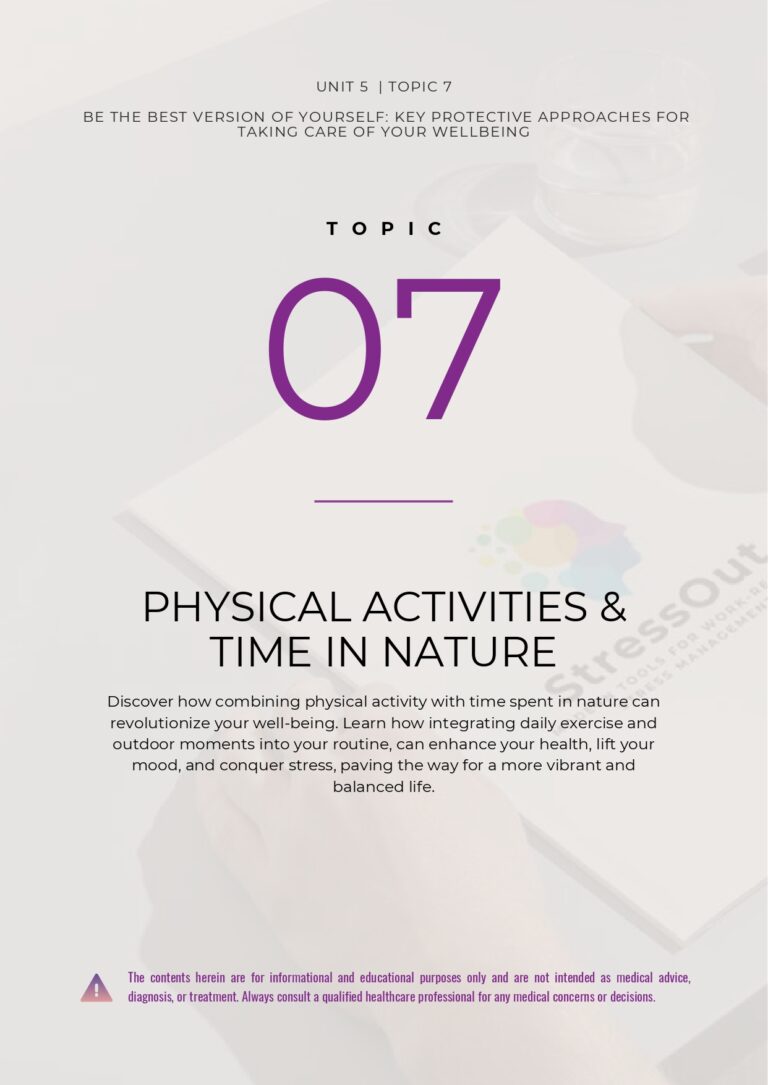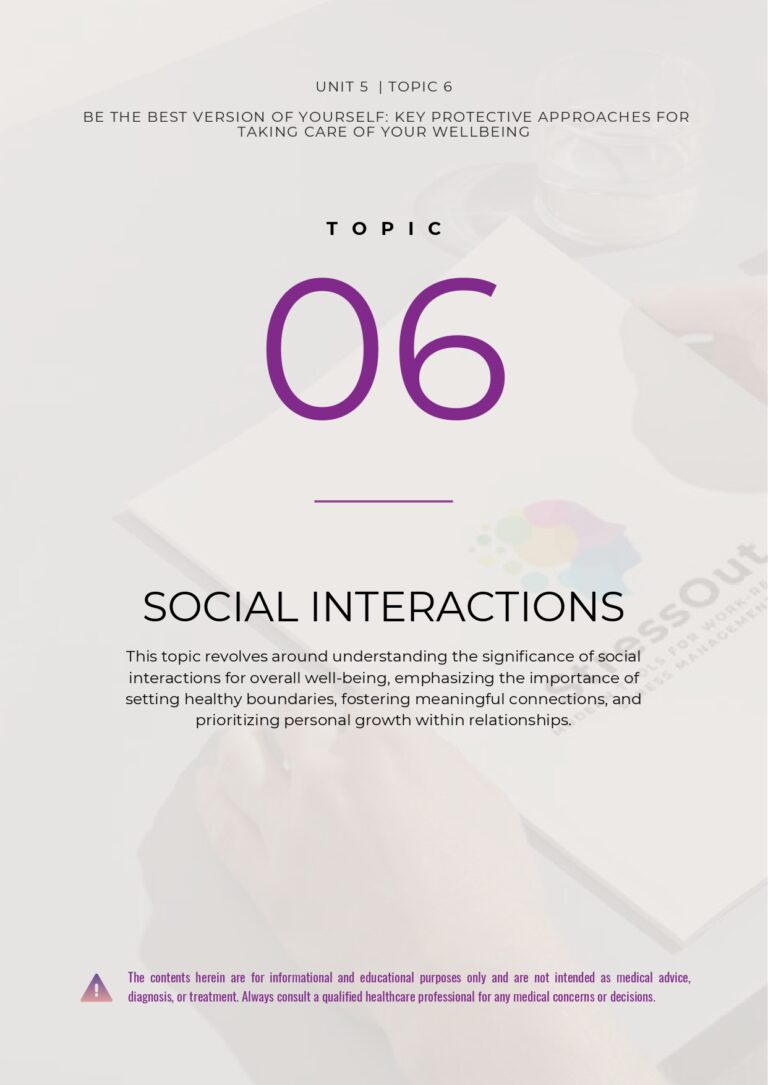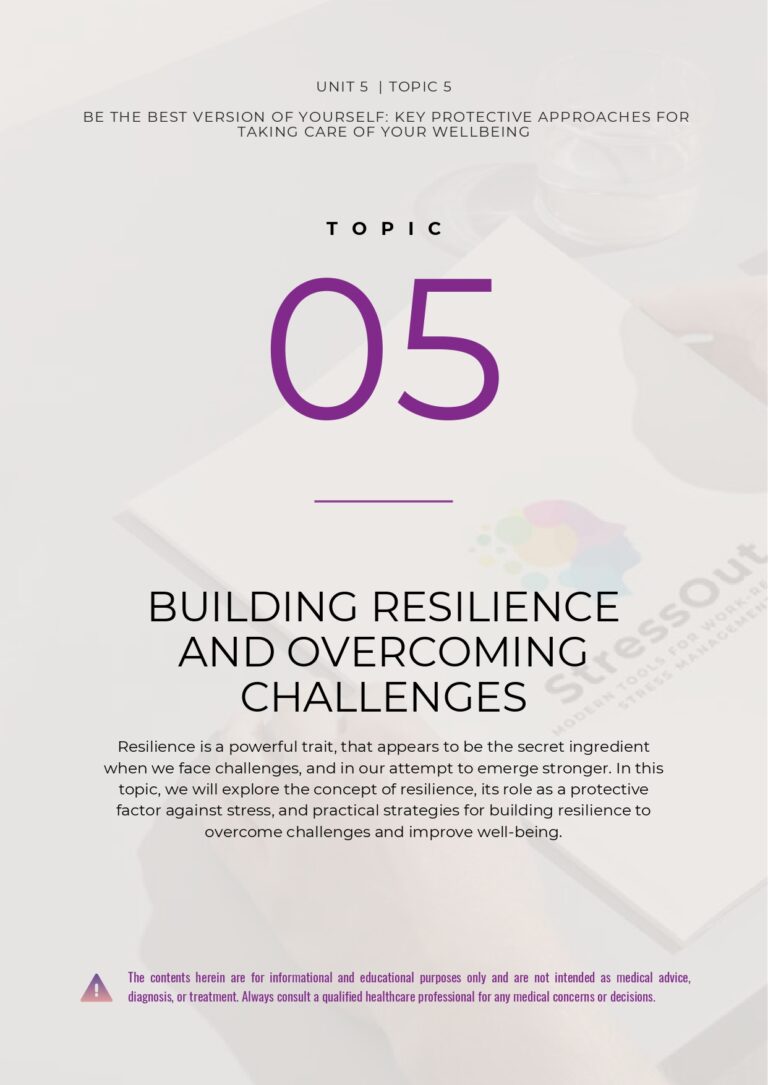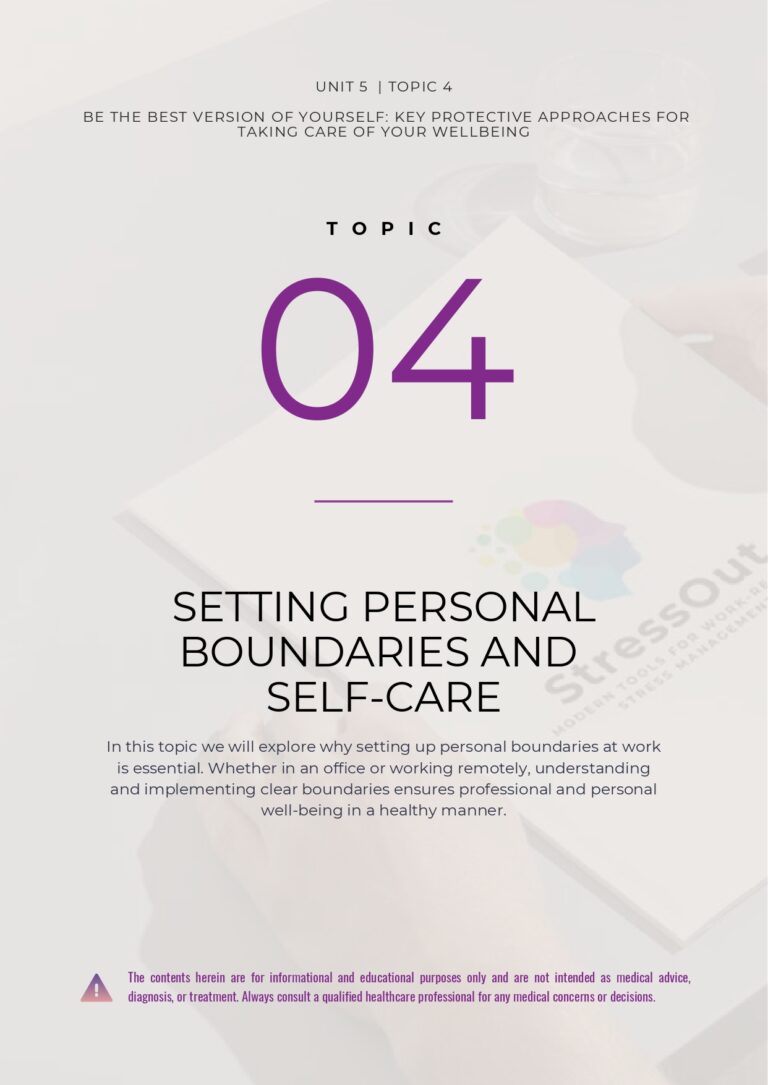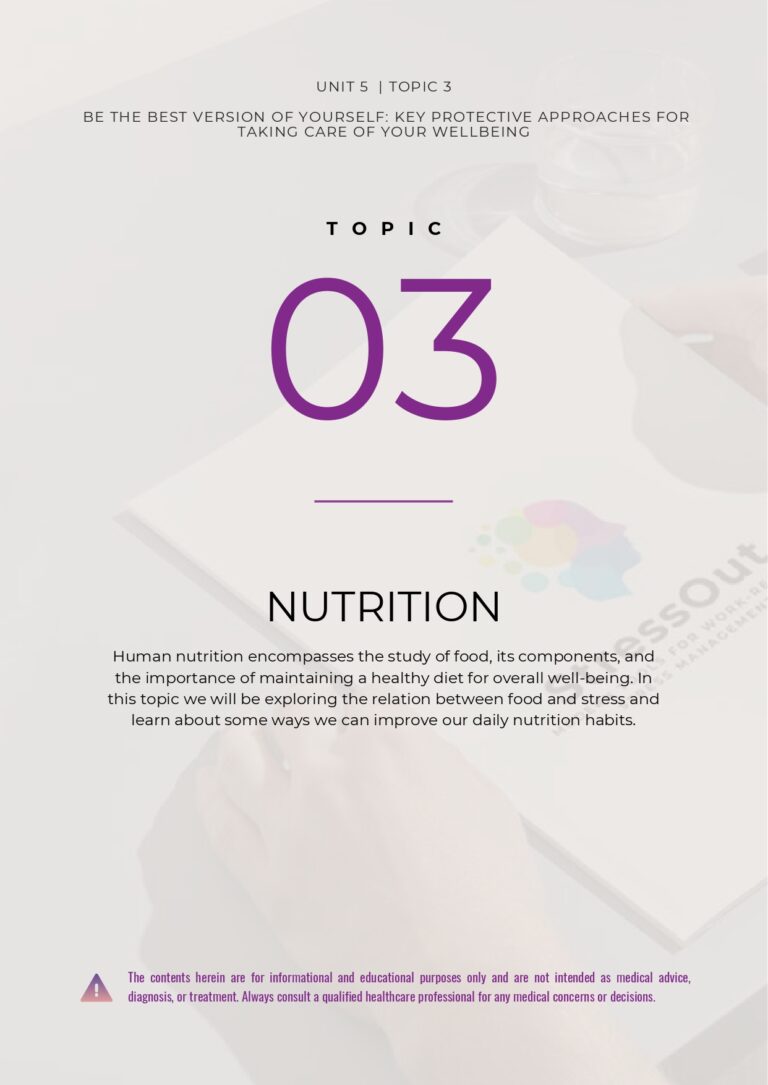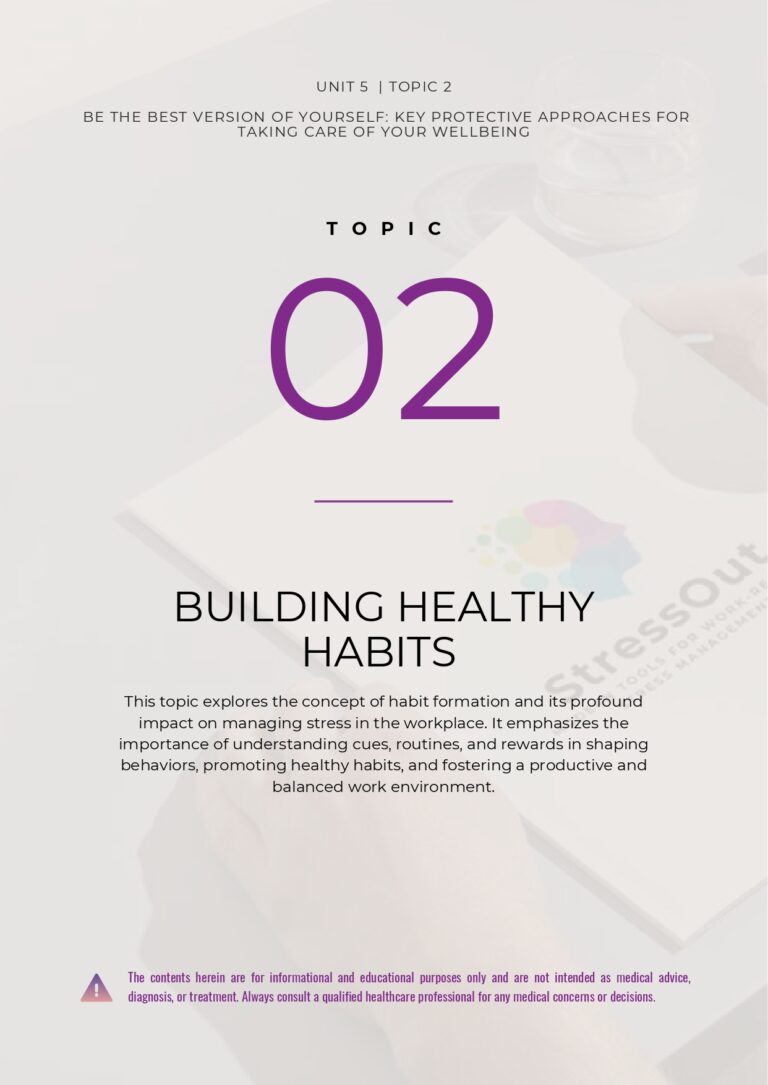Topic 01: Understanding Stress – Key Concepts
This topic introduces the fundamental concepts of work-related stress and burnout, providing a clear distinction between the two. Work-related stress is described as the physical and emotional strain that arises when the demands of one’s job exceed their ability to cope, leading to a variety of emotional, physical, behavioral, and cognitive symptoms. In contrast, burnout is defined as a state of chronic exhaustion resulting from prolonged exposure to stress, typically manifesting as persistent fatigue, detachment from work, and a sense of ineffectiveness. Understanding these differences is crucial for both employees and employers, as it lays the foundation for effective prevention and management strategies.
The module explores the main sources of stress in the workplace, such as excessive workloads, unrealistic deadlines, lack of autonomy, poor relationships, job insecurity, and work-life imbalance. It also highlights the key drivers of burnout, including ongoing high demands, insufficient resources, role ambiguity, and negative organizational culture. By identifying these factors, participants gain insight into how stress and burnout can impact both individual health and overall organizational performance—affecting productivity, employee engagement, absenteeism, and turnover.
Finally, the topic addresses the importance of proactive prevention and management of workplace stress and burnout. It outlines the far-reaching benefits of investing in mental health, from improving employee well-being and job satisfaction to fostering innovation, reducing absenteeism, and ensuring the long-term sustainability of organizations. By building awareness of these key concepts, this unit empowers learners to recognize early warning signs and take meaningful steps toward healthier, more resilient workplaces.




